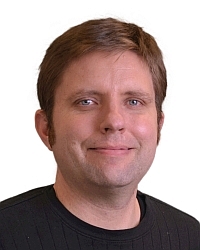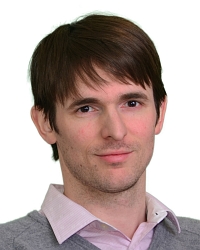TR2020-138
All-in-One Transformer: Unifying Speech Recognition, Audio Tagging, and Event Detection
-
- , "All-in-One Transformer: Unifying Speech Recognition, Audio Tagging, and Event Detection", Interspeech, DOI: 10.21437/Interspeech.2020-2757, October 2020, pp. 3112-3116.BibTeX TR2020-138 PDF Presentation
- @inproceedings{Moritz2020oct,
- author = {Moritz, Niko and Wichern, Gordon and Hori, Takaaki and {Le Roux}, Jonathan},
- title = {{All-in-One Transformer: Unifying Speech Recognition, Audio Tagging, and Event Detection}},
- booktitle = {Interspeech},
- year = 2020,
- pages = {3112--3116},
- month = oct,
- doi = {10.21437/Interspeech.2020-2757},
- issn = {1990-9772},
- url = {https://www.merl.com/publications/TR2020-138}
- }
- , "All-in-One Transformer: Unifying Speech Recognition, Audio Tagging, and Event Detection", Interspeech, DOI: 10.21437/Interspeech.2020-2757, October 2020, pp. 3112-3116.
-
MERL Contacts:
-
Research Areas:
Abstract:
Automatic speech recognition (ASR), audio tagging (AT), and acoustic event detection (AED) are typically treated as separate problems, where each task is tackled using specialized system architectures. This is in contrast with the way the human auditory system uses a single (binaural) pathway to process sound signals from different sources. In addition, an acoustic model trained to recognize speech as well as sound events could leverage multi-task learning to alleviate data scarcity problems in individual tasks. In this work, an all-in-one (AIO) acoustic model based on the Transformer architecture is trained to solve ASR, AT, and AED tasks simultaneously, where model parameters are shared across all tasks. For the ASR and AED tasks, the Transformer model is combined with the connectionist temporal classification (CTC) objective to enforce a monotonic ordering and to utilize timing information. Our experiments demonstrate that the AIO Transformer achieves better performance compared to all baseline systems of various recent DCASE challenge tasks and is suitable for the total transcription of an acoustic scene, i.e., to simultaneously transcribe speech and recognize the acoustic events occurring in it.
Related News & Events
-
NEWS Jonathan Le Roux gives invited talk at CMU's Language Technology Institute Colloquium Date: December 9, 2022
Where: Pittsburg, PA
MERL Contact: Jonathan Le Roux
Research Areas: Artificial Intelligence, Machine Learning, Speech & AudioBrief- MERL Senior Principal Research Scientist and Speech and Audio Senior Team Leader, Jonathan Le Roux, was invited by Carnegie Mellon University's Language Technology Institute (LTI) to give an invited talk as part of the LTI Colloquium Series. The LTI Colloquium is a prestigious series of talks given by experts from across the country related to different areas of language technologies. Jonathan's talk, entitled "Towards general and flexible audio source separation", presented an overview of techniques developed at MERL towards the goal of robustly and flexibly decomposing and analyzing an acoustic scene, describing in particular the Speech and Audio Team's efforts to extend MERL's early speech separation and enhancement methods to more challenging environments, and to more general and less supervised scenarios.

